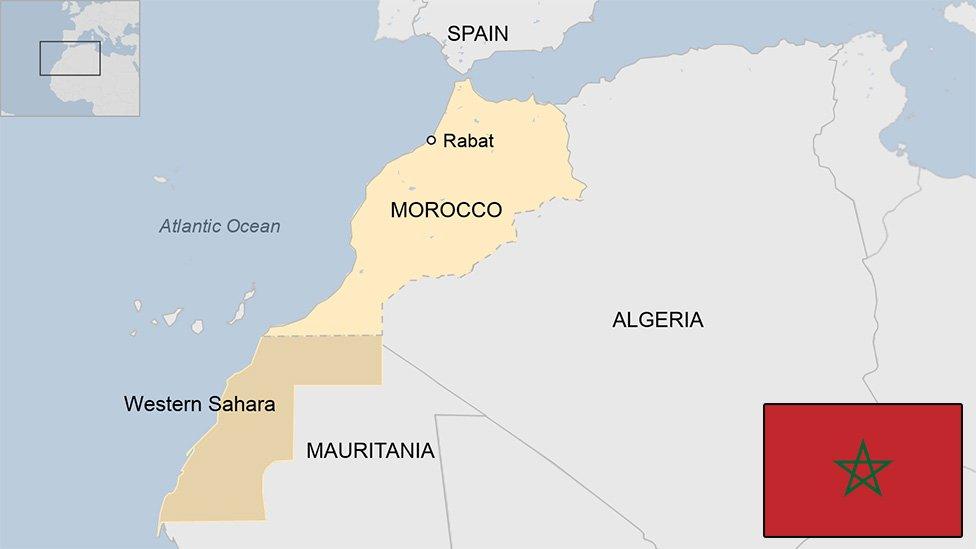Morocco earthquake: The scars, the rubble and the spirit to rebuild
- Published
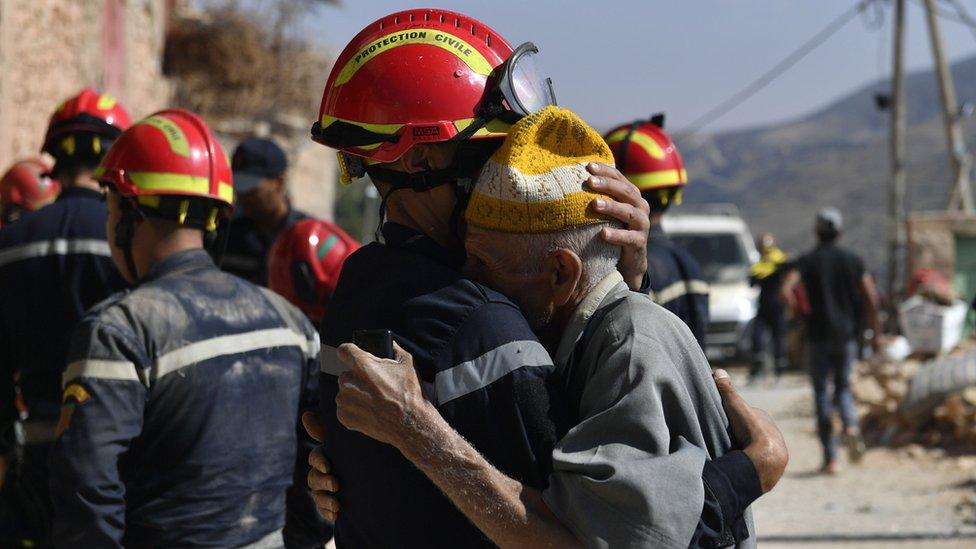
Almost all residents in the Moroccan town of Amizmiz were forced to leave their homes following the earthquake
The earthquake in Morocco just over a week ago maimed a six-century-old mosque in one of Amizmiz's oldest neighbourhoods, taking a bite out of the pinky-brown minaret.
A nearby row of shops appeared untouched - until I saw the vertical scar, as if a giant axeman had tried to cut two shops apart, nearly succeeding. The entrails of a nearby building were on show.
"You should see the really bad ones round the corner," said Abdi, man outside the mosque.
He was right. Those houses didn't really exist, though you could see the remains of a television jutting out of the rubble.
In Amizmiz, many died and some bodies still haven't been recovered.
Next to the shops, another man was methodically piling up his possessions in the small square, the sofas and cupboards exposed to the elements. I wished him courage, and he managed a polite smile.
Not all of Amizmiz has been hit quite as hard as this neighbourhood. But everyone living here has been affected.
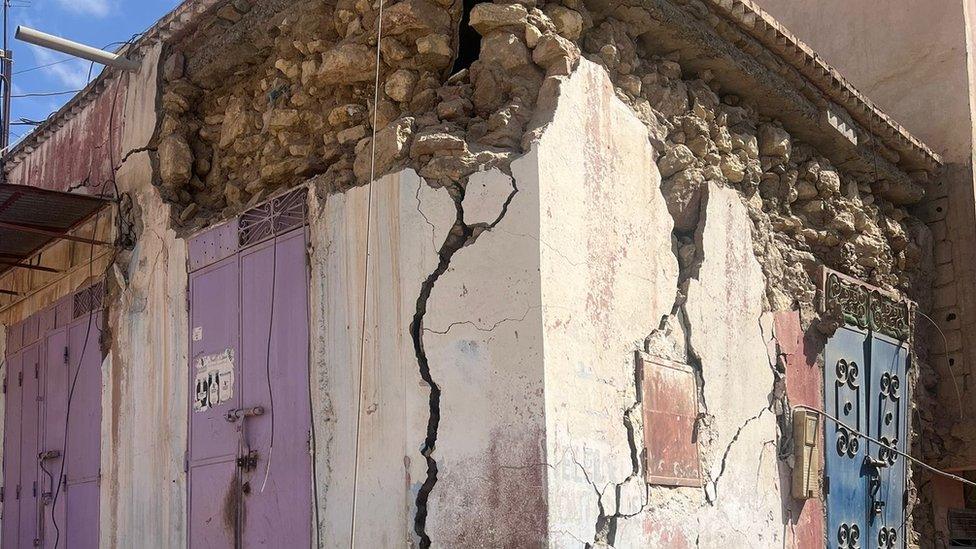
Buildings are not safe in Amizmiz, a Moroccan town attempting to recover from the earthquake
The buildings are not safe and so almost everyone has left their homes.
The lucky ones have been given shelter by the government. I could see a long line of yellow tents on the opposite hillside, and blue ones nearer the middle of town.
A hotel allowed anyone to stay for free, an example of the Moroccan sense of solidarity I came across so often this week.
It was at the hotel that I met Abdelali, a friend of a friend of a friend. A secondary school teacher wearing a lilac shirt and sunglasses, he seemed relaxed - until he started talking about his ordeal.
Many of his students and friends had died in the earthquake.
"We need a new word that is even stronger than horrific, horrible, disastrous, catastrophic"

He had been celebrating his daughter's 21 birthday on what he now calls "black Friday". As soon as she blew the candles out, the ground started to shake. A birthday she will never forget, a moment that changed everything. The whole family now lives in a tent.
"We need a new word," Abdelali said, his voice rising with each phrase, "that is even stronger than horrific, than horrible, than disastrous, than catastrophic. Violent is not a good description, terrifying does not describe the situation."
The school he was so passionate about might not open for months and classes would be held in tents, risking the chances of a whole generation of students. His bank had been destroyed, meaning he had to travel dozens of kilometres to get money out.
His real fear, though, was the winter, when temperatures plunge and snow covers the slopes. What will he and his family do if they are still living in their thin tent when the snow comes?
This part of Morocco is one of the poorest and least developed in the country.
The government's response to this crisis was too slow, many told me. Morocco has always been a bureaucratic, hierarchical county. I approached a succession of officials for an interview, in hospitals and makeshift camps for the displaced; all refused, saying they didn't have permission from their boss.
Morocco has also declined offers of help from the former colonial power France, at least until now, though foreign support will surely be needed for a reconstruction job this big.
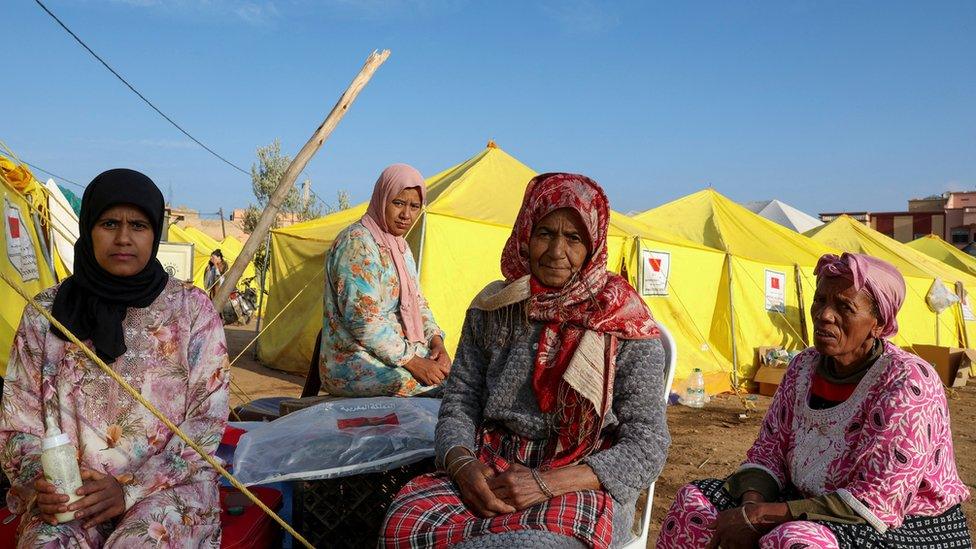
Yellow tents line the hillside in Amizmiz, providing safety and shelter to earthquake survivors
At the hotel, I asked Shaimaa, one of many residents made homeless by the quake, whether she believed the government would be able to help her. She laughed, said she doubted it, but added she had faith in the Moroccan people.
Ever since the earthquake struck, Moroccans have clubbed together to buy water and juice, cooking oil and bread, sanitary products and blankets, everything that the survivors might need.
They have driven into the heart of these mountains, along roads where an aftershock could send rocks raining down from the steep hillsides, to provide help to people like Shaimaa and Abdelali.
Back near the mosque, Abdi motioned me and my colleagues over.
"You must eat," he said, and produced a dish of perfectly steamed vegetables on top of fragrant yellow grains of couscous.
Moroccan hospitality is unescapable, even in the most challenging of circumstances; Moroccans' spirit has not been crushed under the weight of the earthquake.
Amizmiz is - I should say was - a pretty little town.
It follows the curve of the road from Marrakesh into the mountains, with incredible views across the valleys that turn a gentle shade of peach when the sun begins to set. Foreign tourists have come here for decades to hike in the hills, and Moroccans for a bit of respite from the hectic urban charms of Marrakesh.
Not anymore.
This story was broadcast on From Our Own Correspondent - you can listen to the whole episode here or download the podcast on BBC Sounds.
Related topics
- Published14 September 2023
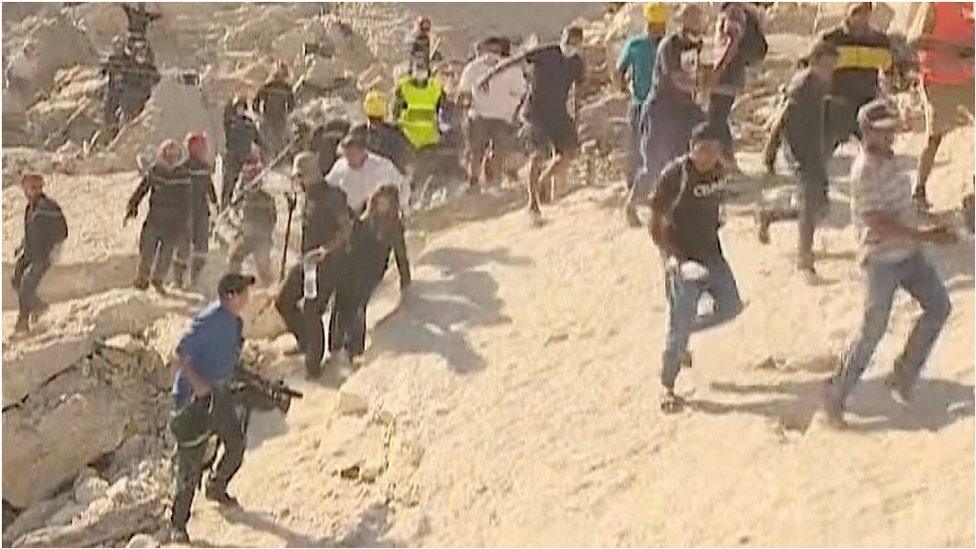
- Published13 September 2023
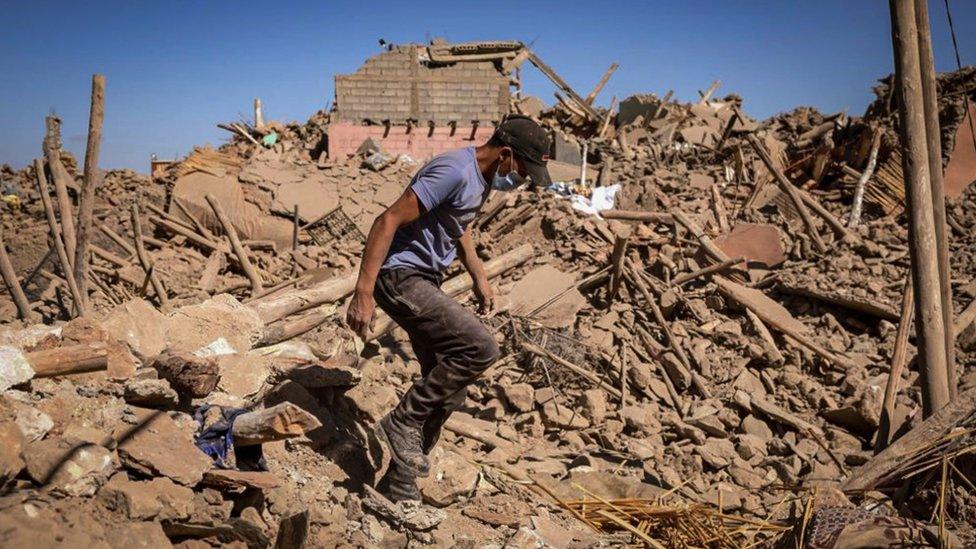
- Published28 October 2024
